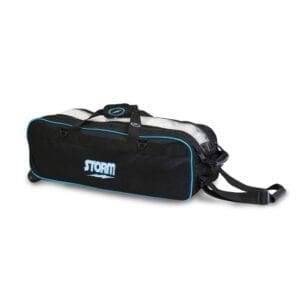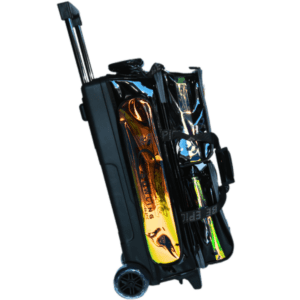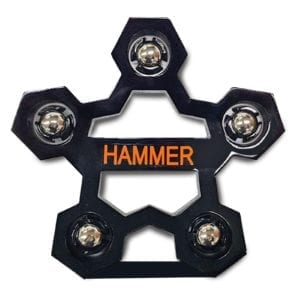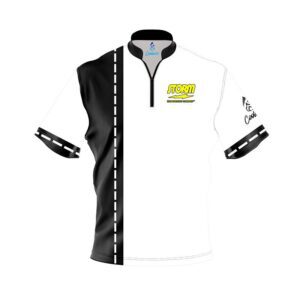Bowling News, Surface & Layouts
USBC Modifies Rule on Bowling Ball Gripping Holes

ARLINGTON, Texas – In a move to add greater clarity and fairness to ball specifications related to bowlers not using their thumb while delivering the ball, the United States Bowling Congress has modified the specifications on bowling ball gripping holes.
Under the new rule, any thumb hole that is not used for gripping purposes during the delivery would be classified as a balance hole. Bowling balls are only permitted one balance hole.
“A no-thumb bowler using a balance hole along with an unused thumb hole could effectively create two balance holes and change ball dynamics through layout choices in ways that are not available to a bowler who does use their thumb,” USBC Interim Executive Director Chad Murphy said. “This rule change aims to create greater fairness by removing the potential advantage of two balance holes. If the bowler doesn’t use the thumb hole for gripping, it’s not really a gripping hole.”
The rule change strictly addresses the use of the thumb hole and only affects bowlers who do not use their thumb for gripping the ball during a delivery. The change will go into effect at the beginning of the winter bowling season, Aug. 1, allowing bowlers affected by the change the time to make necessary repairs to their equipment.
“The change is intended to simplify the specification, make it easier to enforce and reduce confusion,” USBC Managing Director of National Governing Body Neil Stremmel said. “It is not necessary to have a thumb hole if the bowler isn’t going to use it for gripping purposes and the ball has to be within our static balance requirements to be used during USBC certified competition.”
Here is how the new specification will read in the USBC Playing Rules starting Aug. 1:
Holes or indentations for gripping purposes shall not exceed five and shall be limited to one for each finger and one for the thumb, all for the same hand. The player is not required to use all finger holes in any specific delivery, but they must be able to demonstrate, with the same hand, that each gripping hole can be simultaneously used for gripping purposes. Any thumb hole that is not used for gripping purposes during the delivery would be classified as a balance hole.
FREQUENTLY ASKED QUESTIONS
Does this mean every bowling ball thrown by a no-thumb or two-handed bowler who uses no thumb is now going to be illegal and have to be re-drilled?
No. If a bowler doesn’t use their thumb during a delivery, they can either have a thumb hole or a balance hole but not both. If the ball has a thumb hole but the bowler doesn’t use it, then as long as it meets static balance requirements, the ball is allowed. If the ball has both a thumb hole and a balance hole, the bowler needs to plug at least one of them.
What about bowlers who sometimes use their thumb and sometimes do not use their thumb? For example, what if a bowler does not use their thumb for a strike ball but does use their thumb for a spare shot?
The bowler would need to make sure the ball is within specifications from both centers of grip (middle of the grip for thumb in, and center of the bridge for thumb out). If the bowler is going to switch back and forth between using their thumb and not using their thumb, they would need to use a ball without an additional balance hole.
How is this rule enforceable and what is the penalty for those who don’t comply?
Once it is discovered that a bowler is using equipment which is not within specifications, the ball must be removed from competition and corrected before it can be used during certified competition. If the bowler uses a ball that’s non-conforming with knowledge that it’s out of specification, then the scores are subject to forfeiture.
Who is impacted by this rule?
This is strictly for bowlers who do not use their thumb regardless if they use a one-handed or two-handed approach.
If the bowler covers the thumb hole with their palm, would that count as gripping?
No, the bowler is not gripping the ball if they are just covering the hole with their palm.
Why was this rule changed?
This rule change aims to create greater fairness by removing the potential advantage of two balance holes. If the bowler doesn’t use the thumb hole for gripping, it’s not really a gripping hole. A bowler who uses their thumb for gripping is allowed one balance hole.
Did some people have an unfair advantage under the previous rule?
A bowler who doesn’t use their thumb had the opportunity to move their thumb hole and balance hole to create additional drilling options that were not available to those who put their thumb in the ball.





























































